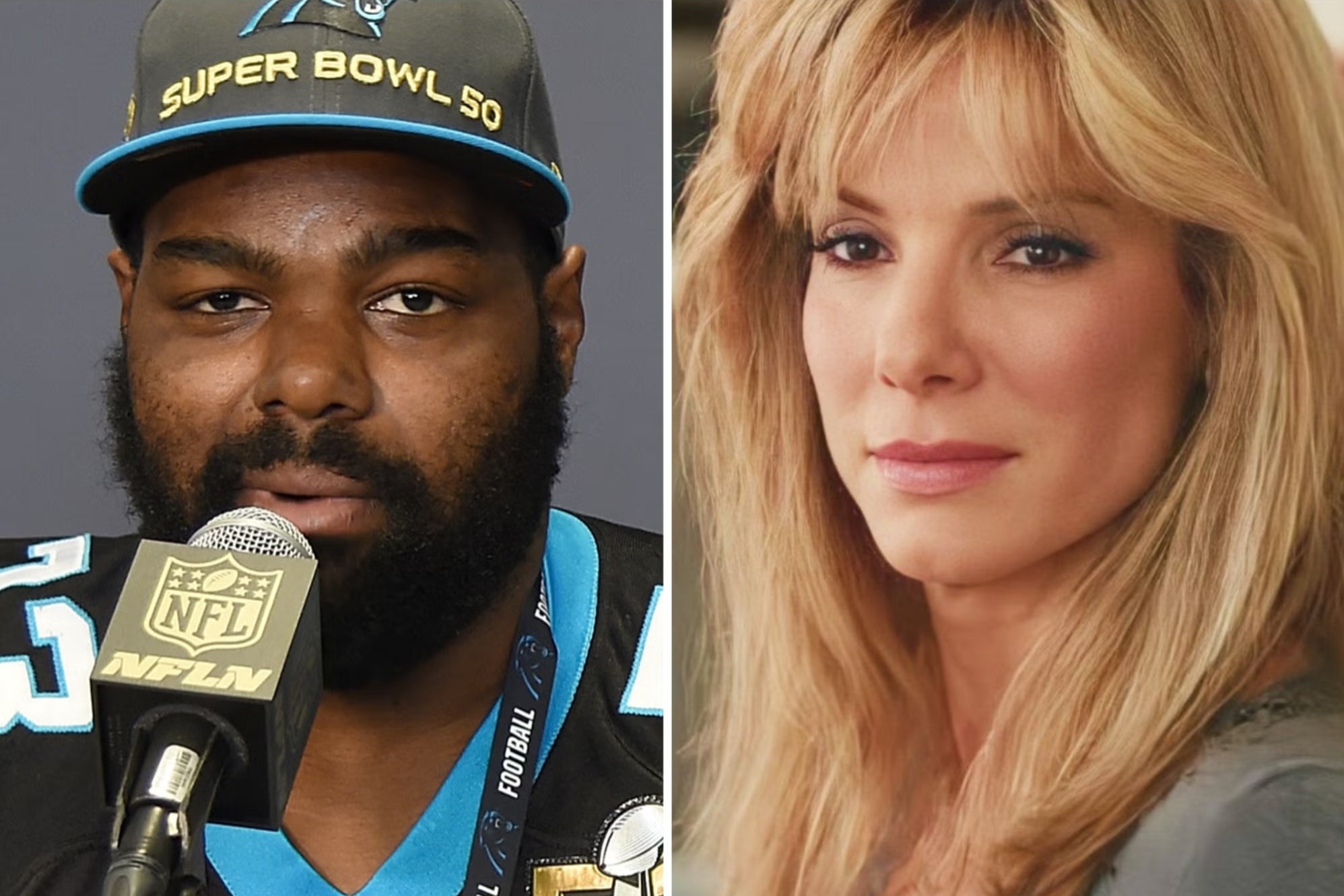The Blind Side was always uncomfortable - now everyone knows why
Even as a child, I found the depiction of Michael Oher’s story to be incredibly uncomfortable


Your support helps us to tell the story
From reproductive rights to climate change to Big Tech, The Independent is on the ground when the story is developing. Whether it's investigating the financials of Elon Musk's pro-Trump PAC or producing our latest documentary, 'The A Word', which shines a light on the American women fighting for reproductive rights, we know how important it is to parse out the facts from the messaging.
At such a critical moment in US history, we need reporters on the ground. Your donation allows us to keep sending journalists to speak to both sides of the story.
The Independent is trusted by Americans across the entire political spectrum. And unlike many other quality news outlets, we choose not to lock Americans out of our reporting and analysis with paywalls. We believe quality journalism should be available to everyone, paid for by those who can afford it.
Your support makes all the difference.Retired NFL star Michael Oher has petitioned a Tennessee court to terminate a conservatorship over him. He alleges that the white Tuohy family - who famously shared their story of saving Oher, who is Black, from crushing poverty by adopting him into their family - were lying. The tale was told through many avenues, most noteably a 2006 book calledThe Blind Side: Evolution of the Game by Michael Lewis, which was later adapted into the Oscar-winning film The Blind Side.
But Oher says the Tuohy family did not adopt him as they led the world to believe. Instead of the heartwarming adoption scene in the award-winning movie, Oher alleges that less than three months after he turned 18, Sean and Leigh Anne Tuohy tricked him into signing a document that granted them conservatorship over the football player, giving them legal authority to conduct business on his behalf - and control his money.
The Tuohy couple have since responded to Michael Oher's claims. “It's upsetting to think we would make money off any of our children," Sean Tuohy told The Daily Memphian, adding the family is “devastated” by Oher's claims.
A conservatorship and an adoption are nowhere near the same thing; a conservatorship strips an adult of their right to determine how their finances are spent or even make medical decisions for themselves, while an adoption is a formal welcoming of another into a family, and the parents are obligated to provide for that child until they turn 18. Oher is 37 years old with a wife and two children and, according to him, the Tuohys still have immense legal control over him. How is this a family?
Heartbreakingingly, Oher says he only recently learned of this. “The lie of Michael’s adoption is one upon which Co-Conservators Leigh Anne Tuohy and Sean Tuohy have enriched themselves at the expense of their Ward, the undersigned Michael Oher,” the petition reads. “Michael Oher discovered this lie to his chagrin and embarrassment in February of 2023, when he learned that the Conservatorship to which he consented on the basis that doing so would make him a member of the Tuohy family, in fact provided him no familial relationship with the Tuohys.”
The Blind Side told the story white people wanted to believe. Oher’s petition suggests an alternate view that brings up an ancestral rage at a story all too familiar to Black people.
Audiences and readers were drawn to Oher and the Tuohys’ story in huge numbers. A well-off white couple takes in a Black boy born into poverty, the son of a woman struggling with an addiction to crack cocaine and one of thirteen children. In Lewis’ book and in the movie, Oher is portrayed as incompetent, not knowing how to interact with others, not able to read and write well. In the movie, he doesn’t even know how to play football. Oher has since said that his portrayal in The Blind Side as unintelligent bothered him deeply. A crucial part of the story’s appeal, then, seems to be how the Tuohy’s were able to overlook Oher’s race and circumstances of his birth and welcome him into the family.
Oher’s petition makes other, heart-wrenching claims. He alleges that, through their authority as his conservators, the Tuohy’s negotiated a deal that paid them and their two white birth children - Collins and Sean Jr - millions of dollars in royalties from The Blind Side’s $300 million dollar earnings, while Oher didn’t receive any compensation. Oher claims that Lee Anne Tuohy in particular has used the lie that her family adopted Oher as the basis for other earnings through her work as a motivational speaker and author, as well as to gain support for her foundation.
It would be easy to simply express shock and disappointment at this story, consoling ourselves into believing we bear no responsibility because we too, were lied to. But I believe that in this story, there is a need to examine the way we consume media, what kinds of stories we find appealing, and how our desire for simple narratives and white savior tales can be harmful.
Even as a child, I found The Blind Side to be incredibly uncomfortable. From Leigh Anne (Sandra Bullock) strutting on the field telling Oher to imagine he’s protecting the Tuohy family to improve his offense game, to the movie’s hostility towards any Black person who dared ask if Oher was being used. At one point, Leigh Anne is even threatened by a Black gang member with a gun. Everything about the movie was designed to send the message that Blackness meant abject poverty, violence, abandonment, and ignorance. While whiteness meant family, comfort, safety, morality, and intelligence. The Blind Side was an egregious example, but Black viewers and film critics have long voiced concerns about these white savior films, most notably The Help and The Green Book, both of which won awards and became box-office successes, while Black stories without white saviors often struggle to get the same recognition, even when they’re more artfully made.
How much of this complex tale has been fueled by an insatiable desire for stories that denigrate Blackness and uplift whiteness? For stories that imply the only way a Black person can succeed is if white people deign to cast their ray of light into our dark hovels of poverty? For stories that suggest racial equality is not Black people finding comfort with our own people, but merely being absorbed into white worlds and white families?
Oher’s petition and allegations should not be shocking to anyone that has been paying attention to racism in this country or, in fact, anyone who watched the movie with a critical eye. It was this society’s refusal to see its own rot that made people not question the narrative, even though Oher himself at the time said he didn’t like how it falsely portrayed him as unintelligent. Instead of asking questions, people ignored him and continued to give the Tuohys a platform. Hopefully this petition will expose the full truth of what happened, and bring some comfort to Oher. The deepest tragedy of all this is he was a child who needed love and support. And according to him, that love and support came with the loss of his freedom.

